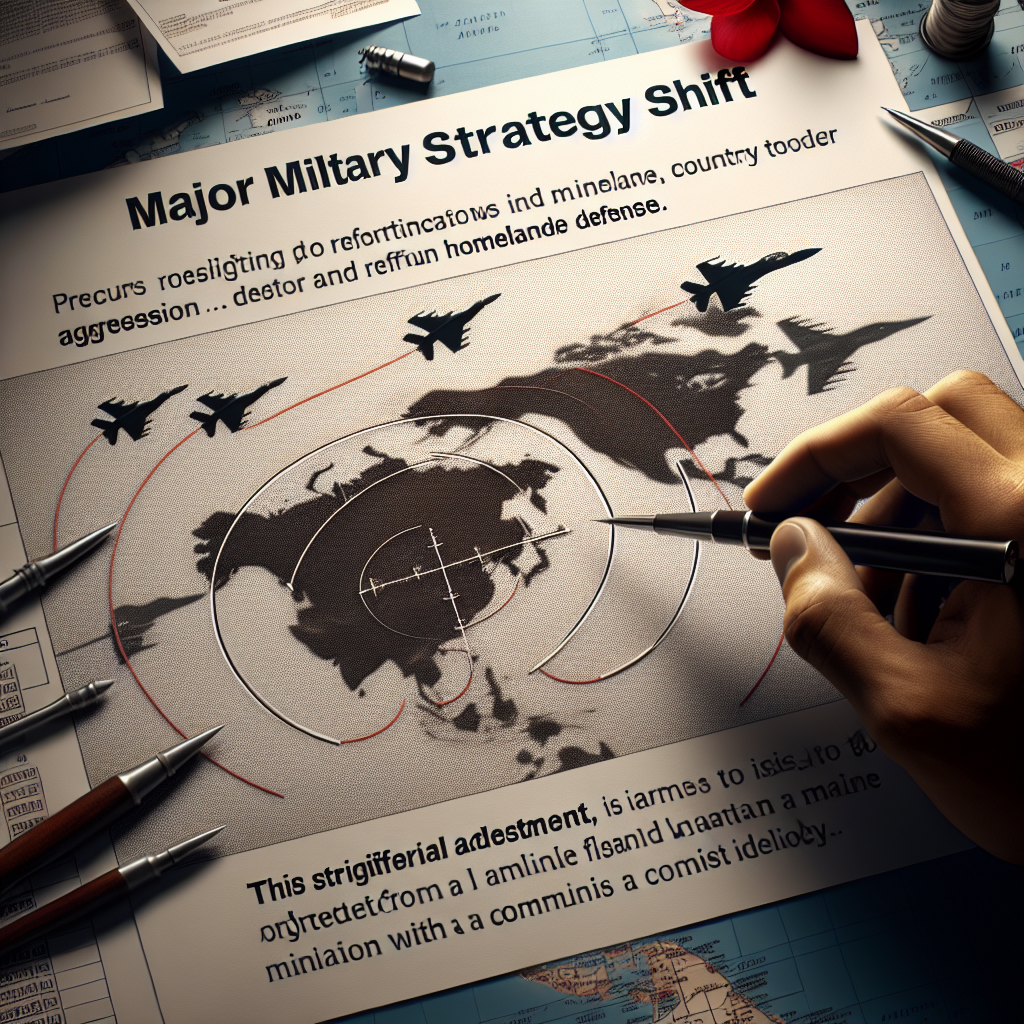According to a confidential memorandum from within the Pentagon, Secretary of Defense Hagaseis is repositioning the United States’ military framework to focus on the Indo-Pacific region, with deterring Chinese Communist Party (CCP) aggression towards Taiwan and strengthening homeland defense as top priorities. The memorandum also reveals that the U.S. will concentrate its military forces to counter conflicts with the CCP, while leaving the threat from Russia to be handled by European allies.
Reported by The Washington Post, the 9-page memorandum titled “Interim National Defense Strategy Guidance” was distributed within the Department of Defense in mid-March and personally signed by Secretary Hagaseis. Most paragraphs in the document are labeled with “Confidential/For Official Use Only.” The Department of Defense has not responded to requests for comments on this matter.
While both the Trump administration and the Biden administration have viewed the CCP as the biggest threat to the U.S. and deployed troops to address conflicts in the Pacific region, what sets apart the document signed by Hagaseis is its depiction of a potential Chinese invasion of Taiwan as the “sole dynamic scenario that must be prioritized over other potential dangers.” As a result, the Pentagon is repositioning the extensive U.S. military structure beyond domestic defense tasks to the Indo-Pacific region.
The internal document outlines the execution of former President Trump’s vision, preparing to win against potential conflicts with the CCP and safeguarding U.S. interests in regions like the “near abroad,” including Greenland and the Panama Canal, where threats may arise.
Furthermore, the U.S. will pressure allies in Europe, the Middle East, and East Asia to increase defense spending to shoulder a significant portion of the deterrent efforts against threats from Russia, North Korea, and Iran.
Hagaseis wrote, “China is the Pentagon’s only pacing threat, and while defending the U.S. homeland, preventing China (CCP) from taking over Taiwan is the Defense Department’s only pacing scenario.”
The Pentagon’s new guidance on “denial defense” regarding Taiwan includes increasing military deployments through submarines, bombers, unmanned vessels, special forces from the Army and Marine Corps, and emphasizing the use of bombs capable of destroying fortified and underground targets. The plan also calls for improving defense at U.S. military bases in the Indo-Pacific region, establishing pre-deployed stockpiles, and enhancing logistics.
While emphasizing deterrence against a Chinese attack on Taiwan, the document also urges pressuring Taiwan to “substantially increase” defense spending.
Taiwan’s President Lai Ching-te stated that he will push for allocating a special defense budget of up to 3% of GDP.
The document also notes that the Pentagon’s force planning framework, in the event of a sudden major-power war, will only consider conflicts with Beijing while leaving the threat from Russia mainly for European allies to address.
The Washington Post reports that the Biden administration’s “2022 Defense Strategy” emphasizes joint allied response against Russian aggression, whereas Hagaseis’ memorandum indicates that NATO allies must bear military burdens “much larger” than those currently, as the U.S. is unwilling to provide forces due to its priorities elsewhere.
Since assuming office, President Trump has avoided commenting on whether the U.S. would take action to prevent CCP’s military control of Taiwan. During a Cabinet meeting at the White House on February 26, when asked about this issue, Trump said, “I never comment on this – never. […] And if I did talk about it, I wouldn’t talk about it to you. I’d talk about it to perhaps somebody else in the room.”
The Pentagon’s internal document shares similarities with a report released last year by the conservative think tank Heritage Foundation, with some passages nearly identical. Alexander Velez-Green, one of the co-authors of the Heritage Foundation report, currently serves as the Acting Chief Policy Officer at the Pentagon.
The Heritage Foundation’s report from August last year suggested that the Pentagon prioritize three core issues: deterrence against CCP’s invasion of Taiwan, homeland defense, and increasing military burdens of allies and partners. Hagaseis’ signed internal document reflects these priorities.

